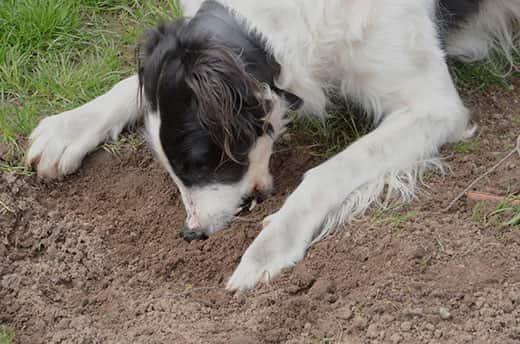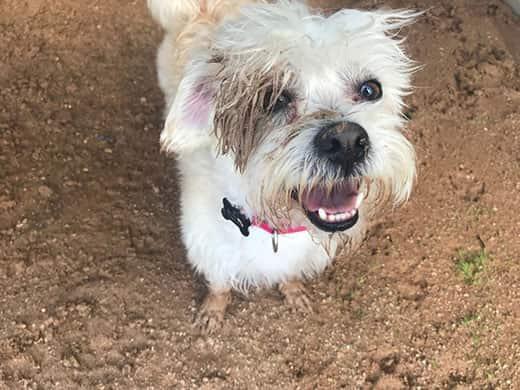
-
Find the right food for your petTake this quiz to see which food may be the best for your furry friend.Find the right food for your petTake this quiz to see which food may be the best for your furry friend.Featured products
 Perfect Digestion Small & Mini Adult Dog Food
Perfect Digestion Small & Mini Adult Dog FoodHill's Science Plan Perfect Digestion Small & Mini Breed Adult Dog Food with Chicken & Brown Rice supports ultimate digestive well-being & a healthy microbiome.
Shop Now Perfect Digestion Large Breed Puppy Food
Perfect Digestion Large Breed Puppy FoodPrecisely balanced nutrition with Hill's ActivBiome+ prebiotic blend actively contributes to supporting digestive health and overall well-being to help your pet feel their best
Shop Now Small & Mini Mature Adult 7+ Dog Food
Small & Mini Mature Adult 7+ Dog FoodHill's Science Plan Small & Mini Breed Mature Adult Dog Food with Chicken is a complete pet food, specially formulated with ActivBiome+ Multi-Benefit Technology.
Tailored nutrition to support graceful ageing in small dogs. Specially made with a synergistic blend of nutrients for energy & vigor.Shop NowFeatured products Hairball & Perfect Coat Adult Cat Food
Hairball & Perfect Coat Adult Cat FoodHill's Science Plan HAIRBALL & PERFECT COAT Adult cat food with Chicken is specially formulated to effectively help avoid hairball formation in adult cats while promoting a beautiful coat. Thanks to its mix of essential Omega-6 fatty acids, this food benefits the cat's skin and fur keeping them healthy and shiny. Our Advanced Fibre Technology helps reduce hairballs by naturally promoting their passage through the gut. This food is formulated with high-quality protein for a perfectly balanced, great-tasting recipe.
Shop Now Kitten Food
Kitten FoodHill's Science Plan Kitten Wet Cat Food Premium Chunks in Sauce with Chicken is a complete pet food for kittens and for pregnant or nursing cats
Shop Now Hypoallergenic Dry Cat Food
Hypoallergenic Dry Cat FoodHILL'S SCIENCE PLAN Hypoallergenic Adult cat food with egg & insect protein is a complete pet food for adult cat 1–6 years old. It's formulated for cats with delicate skin and stomach, with limited high quality novel protein sources & no grain.
Shop Now -
Dog
- Dog Tips & Articles
-
Health Category
- Weight
- Food & Environmental Sensitivities
- Urinary
- Digestive
- Joint
- Kidney
-
Life Stage
- Puppy Nutrition
- Adult Nutrition
- Senior Nutrition
Cat- Cat Tips & Articles
-
Health Category
- Weight
- Skin & Food Sensitivities
- Urinary
- Digestive
- Kidney
-
Life Stage
- Kitten Nutrition
- Adult Nutrition
Featured articles The Right Diet For Your Pet
The Right Diet For Your PetLearn what to look for in healthy pet food & nutrition, including ingredients, quality of the manufacturer, your pet's age, and any special needs they have
Read More Understanding Your Pet's Microbiome
Understanding Your Pet's MicrobiomeLearn what a pet's microbiome is, how it contributes to your pet's gut & overall health, and why nutrition is important in maintaining healthy microbiomes.
Read More Pet Food Storage Tips
Pet Food Storage TipsWhere you store your cat and dog food can make a big difference in the quality and freshness once it is opened. Here are some common questions and recommendations for optimal storage for all of Hill’s dry and canned cat and dog food.
Read More -


Dog's will eat all sorts of things, but eating dirt might be one that gives you cause for concern. However, eating dirt is a fairly common behaviour among dogs. When pooches eat non-food items, whether dirt, grass, rocks, sticks or garbage, they may be diagnosed with a condition called pica, which just means that your dog is eating non-food items. If the only non-food item they eat is dirt, then they might have what is referred to as geophagia, according to Wag! But is your dog's dirt eating just a strange habit or should you be concerned?
Here's why your dog might feel compelled to chow down on dirt and why you should take the behavior seriously.

Why Is My Dog Eating Dirt? Possible Explanations
Dogs eat dirt for a number of reasons. The desire for munching on soil might be boredom or stress, or it could simply be because they smelled something tasty mixed in the mud. But it could also signal an underlying health problem or a lack of proper nutrition, says the American Kennel Club(AKC). Compulsive geophagia might be a sign that your pooch has one of the following issues.
Anemia
Anemia in dogs is a condition marked by low blood cell count or hemoglobin levels. According to CertaPet, anemia can be caused by a nutritional imbalance. An anemic dog may instinctively turn to eating dirt in an attempt to restore any deficiencies causing this condition. The only way to reliably diagnose anemia is through blood work tests.
Nutritional Imbalance or Mineral Deficiency
Even without anemia, a nutritional imbalance alone could spur your pooch to gobble dirt. Eating dirt can be a sign that your dog isn't getting enough of the essential minerals they need for good health. Or, a hormonal issue could be preventing your dog from absorbing the minerals and nutrients in their food. Nutritional imbalances are very rare in healthy dogs, so make sure to talk to your veterinarian about choosing the best dog food for your pup.
Upset Stomach or Gastrointestinal Disturbance
Dogs might also turn to eating dirt in an attempt to soothe an upset stomach or rumbling bowels. However, if your dog is having tummy issues, they're more likely to eat grass, says the AKC. It's possible that in a dog's zeal to wolf down the grass, some dirt might get added to the mix.


Tasty Tips
The Dangers of Dogs Eating Dirt
If you see your dog eating dirt, make sure to immediately discourage the behaviour, as it can pose a number of risks to their health. Here are several risks associated with geophagia in dogs, according to the AKC:
- Impacted intestines, which could require surgery
- Consumption of pesticides and other toxins
- Choking
- Damage to the teeth, throat, digestive tract or stomach from ingesting rocks or sticks
- Ingestion of soil-dwelling parasites
When Should I See the Vet?
 Pay attention to see if your dog is eating dirt regularly or if it was just a one-off event. If they only eat dirt once or twice to relieve stress or boredom, you should discourage this behaviour, but it might not be cause for alarm. However, if it turns into a compulsive habit or you notice your dog acting different after eating the dirt, contact your veterinarian. They'll need to examine your dog for any underlying health issues that might be prompting this behaviour. The vet may also check your pup for any internal injuries that may have resulted from eating dirt.
Pay attention to see if your dog is eating dirt regularly or if it was just a one-off event. If they only eat dirt once or twice to relieve stress or boredom, you should discourage this behaviour, but it might not be cause for alarm. However, if it turns into a compulsive habit or you notice your dog acting different after eating the dirt, contact your veterinarian. They'll need to examine your dog for any underlying health issues that might be prompting this behaviour. The vet may also check your pup for any internal injuries that may have resulted from eating dirt.
How to Prevent Your Dog from Eating Dirt
If a health problem or nutritional imbalance is behind your dog's geophagia, then treating the condition or upgrading your dog's food should stop the behaviour. However, if eating dirt has become a habit that needs to be broken, here are several strategies to try:
- Provide a distraction whenever your dog starts eating dirt. You can distract them with a verbal command or a loud noise, or by offering a toy to chew on instead.
- Leash your dog whenever you go outside so you can lead them away from areas with exposed soil.
- Remove indoor potted plants or place them well out of your pup's reach.
- Make sure your dog gets plenty of physical activity and mental stimulation to help relieve stress and prevent them from eating dirt out of boredom.
- Address any potential causes of stress in your dog's life, such as a big change in routine or family structure or separation anxiety. It could be that your dog simply needs time to adjust.
If none of these suggestions work, you might need to seek help from a professional trainer or dog behaviour specialist to break this habit.
While eating dirt might be common among dogs, it isn't safe to let it continue. The sooner you act to prevent this behaviour and get to the bottom of why it's happening, the better it will be for your dog's health and well-being.
If you think your dog may be suffering from a sensitive stomach ask your vet about switching his food to Science Plan Sensitive Stomach & Skin or Prescription Diet Digestive Care.


Jean Marie Bauhaus is a pet parent, pet blogger, and novelist from Tulsa, Oklahoma, where she usually writes under the supervision of a lapful of fur babies.
Related products

Hill's Science Plan Perfect Digestion Small & Mini Breed Adult Dog Food with Chicken & Brown Rice supports ultimate digestive well-being & a healthy microbiome.

Hill's Science Plan Small & Mini Breed Mature Adult Dog Food with Chicken is a complete pet food, specially formulated with ActivBiome+ Multi-Benefit Technology.
Tailored nutrition to support graceful ageing in small dogs. Specially made with a synergistic blend of nutrients for energy & vigor.

Precisely balanced nutrition with Hill's ActivBiome+ prebiotic blend actively contributes to supporting digestive health and overall well-being to help your pet feel their best

Hill's Science Plan Large Breed Adult Dog Food with Lamb & Rice is a complete pet food, specially formulated with ActivBiome+ Multi-Benefit Technology.
This food is specifically designed to fuel the energy needs of large breed dogs during the prime of their life.
Related articles

Discover the causes, signs, and treatments of kidney disease in dogs and find methods of supporting your dog's kidney health. Learn more at Hill's Pet South Africa.

Dog obesity is a significant problem - learn more about helping your dog become trimmer and healthier through improved nutrition.

Discover how the field of dog science is giving us more and more insights into the inner workings of our furry best friends.

Learn about snake bites on dogs, including clinical symptoms to look for, what to do if you think your dog was bitten, and treatment & prevention options.

Put your dog on a diet without them knowing
Our low calorie formula helps you control your dog's weight. It's packed with high-quality protein for building lean muscles, and made with purposeful ingredients for a flavorful, nutritious meal. Clinically proven antioxidants, Vitamin C+E, help promote a healthy immune system.
Put your dog on a diet without them knowing
Our low calorie formula helps you control your dog's weight. It's packed with high-quality protein for building lean muscles, and made with purposeful ingredients for a flavorful, nutritious meal. Clinically proven antioxidants, Vitamin C+E, help promote a healthy immune system.

